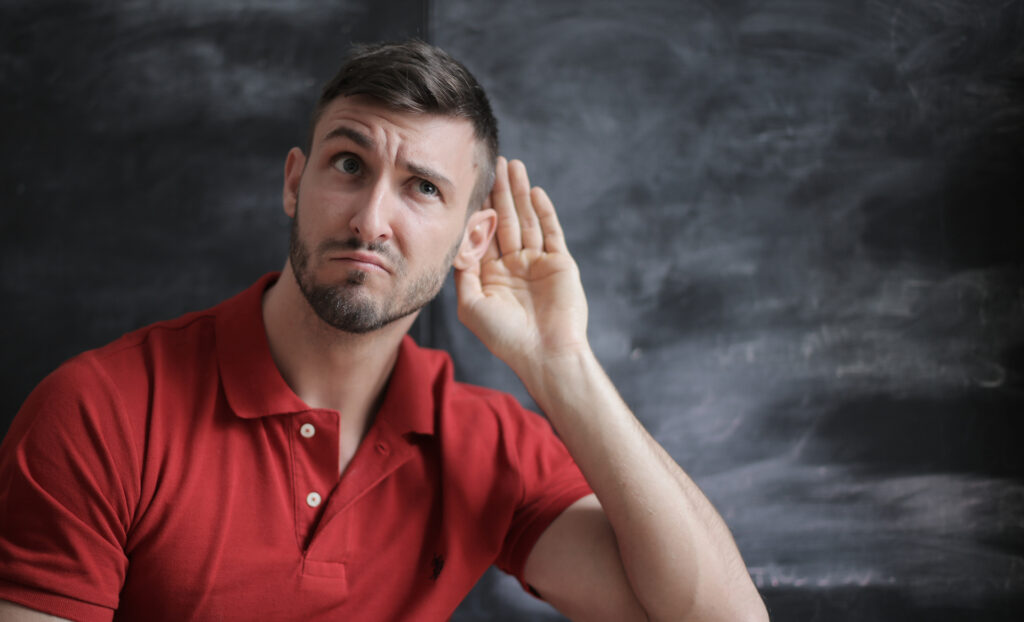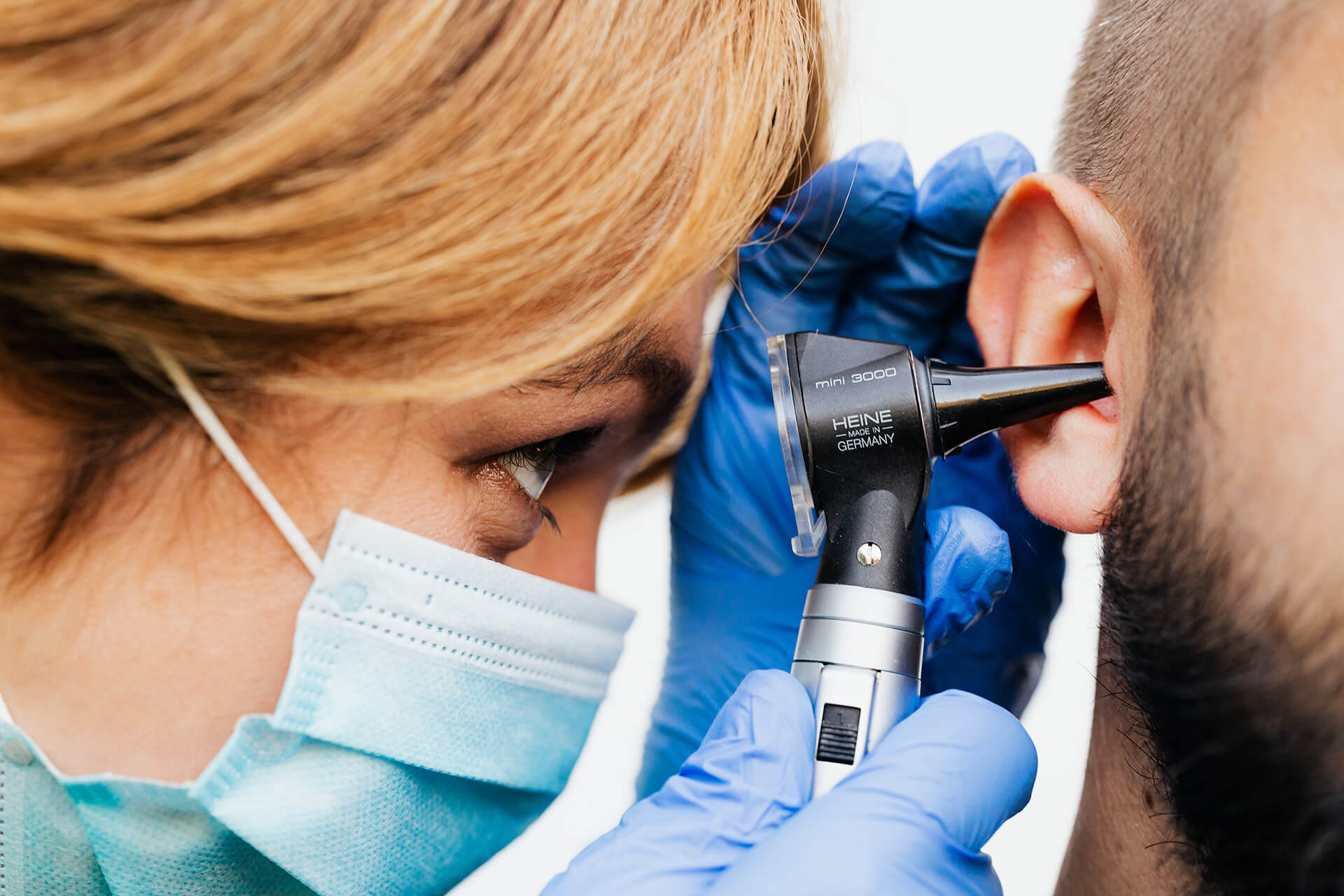Is the sudden hearing loss in one ear an emergency? First of all, let’s start with understanding the term of hearing loss in one ear.
It is known as unilateral hearing loss or single-sided deafness, depending on the severity of the hearing loss. People can be born with unilateral hearing loss, or develop it later as a child or adult.
It’s generally referred to as “Single-Sided Deafness” (SSD) when the degree of hearing loss is profound or near-profound. The degree of hearing loss can vary, but a permanent hearing loss in one ear exists when a person has mild, moderate, or severe hearing loss in one ear and normal hearing ability in the other ear.
Table of Contents
- What is Hearing Loss?
- What Causes Hearing Loss?
- What is Sudden Hearing Loss in One Ear or Sudden Deafness?
- How to Diagnose Sudden Hearing Loss in One Ear?
- Signs You Might Have If Suffering from Sudden Hearing Loss in One Ear
- How to Treat Sudden Hearing Loss in One Ear?
- Started to Feel Sudden Hearing Loss in One Ear At Work?
- Sources
First of All – What is Hearing Loss?
It’s a major public health issue that is the third most common physical condition after arthritis and heart disease. Hearing loss can occur suddenly but usually develops gradually.
Hearing loss is defined as one of three types: Conductive (involves outer or middle ear), Sensorineural (involves inner ear), Mixed (combination of the two).
Read More: About Hearing Loss >
General Signs of the Hearing Loss
- Difficulty hearing other people clearly and misunderstanding what they say.
- Asking people to repeat themselves.
- Listening to music or watching television with the volume turned up higher than other people require.
- Difficulty understanding words, especially against background noise or in a crowd of people.
- Frequently asking others to speak more slowly, clearly, and loudly.
- Withdrawal from conversations.
- Avoidance of some social settings.
- With children, it is especially important to diagnose and treat their loss as early as possible.
Other Similar Topics:
What Causes Hearing Loss?
The most common occurrences are damage to the inner ear, aging, and exposure to loud noise. They may cause wear and tear on the hairs or nerve cells in the cochlea that send sound signals to the brain.
- When these hairs or nerve cells are damaged or missing, electrical signals aren’t transmitted as efficiently, and hearing loss occurs. Higher pitched tones may become muffled to you, and it may become difficult for you to pick out words against background noise.
- The gradual buildup of earwax block the ear canal and prevent conduction of sound waves. Earwax removal can help restore your hearing.
- Ear infection and abnormal bone growths or tumors in the outer or middle ear, together with a raptured eardrum (tympanic membrane perforation) can be one of the most likely factors for the potential hearing loss complications.
- Loud blasts of noise, sudden changes in pressure, poking your eardrum with an object, and infection can cause your eardrum to rupture and affect your hearing.
Read More: Hearing Loss Symptoms, Causes, and Prevention >

Source: Pexels
What is Sudden Hearing Loss in One Ear or Sudden Deafness?
Sudden Sensorineural Hearing Loss (SSHL) is commonly known as sudden deafness. It usually occurs unexplained, as a rapid loss of hearing (usually in one ear) mainly instant or in a period of several days.
It should be considered a medical emergency, and anyone who experiences SSHL should visit a doctor immediately!
Sometimes, people with SSHL put off seeing a doctor because they think their hearing loss is due to allergies, a sinus infection, earwax plugging the ear canal, or other common conditions, however, delaying the treatment decreases its effectiveness.
How to Diagnose Sudden Hearing Loss in One Ear?
“Sudden sensorineural hearing loss seems to strike about one person in 5,000 every year,” said Dr. Steven Rauch, an ear specialist at Massachusetts Eye and Ear. “Here in metro Boston, it amounts to approximately three to five hundred cases a year.”
To diagnose sudden hearing loss in one ear, a doctor will usually use a hearing test called pure tone audiometry. This test helps him or her to determine if the hearing loss is caused by sound not reaching the inner ear or by a sensorineural deficit.
Pure tone audiometry can also show the range of hearing that’s been lost. If You’re interested, test your hearing with the JLO’s free hearing test by CLICKING HERE >
“Sudden sensorineural hearing loss is a real ear emergency,”. “The good news is that sudden sensorineural hearing loss is quite treatable, but because the symptoms are not very scary, many patients just ignore them until it’s too late,” said Dr. Rauch.
If you are diagnosed with sudden deafness, your doctor will probably order other tests to try to determine an underlying cause for your SSHL. These tests may include blood tests, imaging (Magnetic Resonance Imaging, or MRI), and balance tests.
Signs You Might Have If Suffering from Sudden Hearing Loss in One Ear
- You might notice the changes when they wake up in the morning.
- You might notice changes when you try to use the deafened ear, for example, when they use a phone.
- You might notice a loud, alarming “popping-like noise” just before their hearing disappears.
- You might become dizzy, have ringing in your ears (tinnitus), or both.
The good news is that 50% with those kinds of hearing loss problems will recover some or all of their hearing spontaneously, usually within one to two weeks, and 85% of those who receive treatment from an otolaryngologist will recover some degree of their hearing.
Read More: Is Tinnitus Serious? >

Source: Unsplash
How to Treat Sudden Hearing Loss in One Ear?
In most cases, doctors prescribe steroids (cortisone) which are taken orally over the period of one to two weeks, as this is the most beneficial treatment for sudden hearing loss.
Studies show that patients who begin this treatment within two to four weeks after the onset of the loss have the best chance of recovery. In some cases, an additional (“booster”) shot of steroids is injected directly into the ear. Injection allows higher doses of steroids to reach the inner ear fluids, but it does not lead to recovery of hearing in every case.
There’s hope for those patients who suffer permanent hearing loss! Being fitted with hearing aids or receiving a surgically implanted cochlear implant can assist greatly with amplification, hearing in background noise, understanding speech, locating the direction of sounds, and reducing the burden.
Started to Feel Sudden Hearing Loss in One Ear At Work?
The Workers Compensation Program was established in 1911 to encourage employers to make the workplace safer by requiring safety programs and the use of safety devices.
Since 1911, there have been over 2.5 million workers’ compensation claims filed. Hearing loss workers’ compensation claims now rank #3 in the number of occupational diseases claims filed.
Hearing loss workers’ compensation benefits are largely undiscovered benefits covering hearing health care, which is often uninsured. Many health insurance policies and programs like Medicare do not cover hearing aid purchases but workers’ compensation can.
It also pays for the disability of hearing loss just as it does for the loss of eyesight or other injuries.
Aging populations, advances in technology, and greater sensitivity to hearing loss are bringing more attention to financing hearing health care. For the most part, those who qualify for hearing loss workers’ compensation benefits are retired hearing-impaired workers who live on fixed incomes.
Read More: All About Workers’ Compensation >
Always feel free to ask Johnson Law Offices about the process, the law, or an individual case. The legal, medical, and audio-metric questions that come into play in a hearing loss workers’ compensation claim can be complicated.
The claims require attention to detail mixed with an ability to work well with hearing-impaired retirees and their families, especially spouses, and their hearing health care professionals.
Sources
Contact Us
If you, or anyone you know, worked in noise and suffers from hearing loss, please do not hesitate to contact us.
Contact Us


